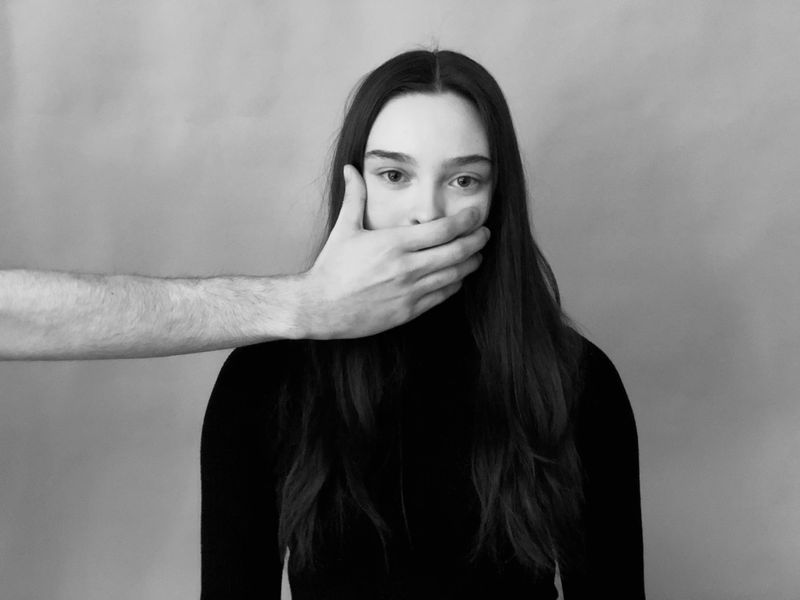We Are America
“He’s Mean Because He Likes You”
By Lilly

Lowell High School, Lowell, Massachusetts
In fourth grade, there was a boy that pulled my hair and slapped my arm in class. When I told him to stop, he laughed at me. I told a teacher about these encounters, and she explained to me that boys act this way when they like a girl. When were boys expected to stop behaving this way, I wondered.
Hair-pulling turned into verbal threats of sexual assault in fifth grade. For example, my friend told me he liked me. I told him I didn’t like him back. Rather than moving on, he told me he did not care and that we were going to have sex anyway. At school the next day, I found out that he told other people he was going to rape me. I felt scared being in the same room as him, even with many classmates and staff around. This was probably due to the fact that people at my school, including teachers, seemed to shrug off statements like this all the time.
I continued to receive threats like this throughout middle school at lunch, in the halls, and even in class with teachers nearby. I learned to brush this behavior off in order to cope. When talking with other girls, I noticed that every one of them had similar stories to tell. However, when my friends and I discussed the things that were said and done to us, we laughed it off out of discomfort. To us, it had become normal.
In seventh grade, boys at school started groping girls, including me. I grew very insecure, and stopped wearing leggings in order to dress less “provocatively.” I dreaded seeing these classmates. Boys openly talked about my body and what they were going to do with it to other people and to me. My teachers never stuck up for me and their seeming lack of care made me think that this was normal. I felt unsafe, yet too embarrassed to talk to my parents about my experiences. Because it seemed to happen to so many friends, if I spoke up, it felt like I would be making a big deal out of nothing.
This behavior continued on into high school. A boy in my class continuously expressed his feelings toward my body and made jokes about us having sex. Days before Halloween, he told me he was going to drug me on Halloween night so that I fell unconscious. He said that he and five of his friends would take turns with me. My class was usually quiet so other classmates heard what he said, but no one said anything in response. I felt alone in a room full of people. I shared this incident with my boyfriend and he was very angry about it, but I told him it wasn’t that big a deal. Showing that I was upset made me feel weak.
A week later, the boy who made the comments saw me with my boyfriend. From then on, he was respectful to me. This was the case with a few other boys that had been harassing me. I came to realize that people did not treat me differently out of sudden respect for me; they respected my boyfriend.
Of course, I was relieved that I was no longer being sexually harassed in school, but the fact that it took another boy’s presence to stop it made it hard for me to be happy. Actually, it infuriated me. I realized it never should have happened in the first place. As a young girl, I should not have been taught that it was normal.
Now as a sixteen-year-old, I can no longer accept harassment. Along with math, history, literature and science, schoolboys are learning to disrespect girls. Young boys should never be taught that violence and cruelty are the ways to catch a girl’s attention.
© Lilly. All rights reserved. If you are interested in quoting this story, contact the national team and we can put you in touch with the author’s teacher.